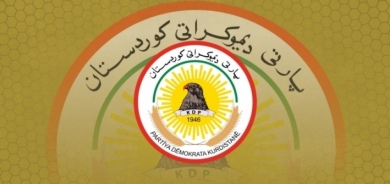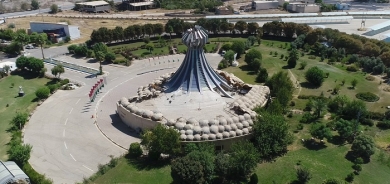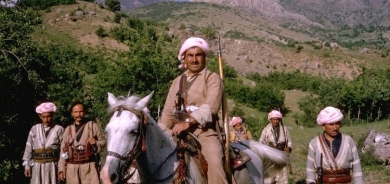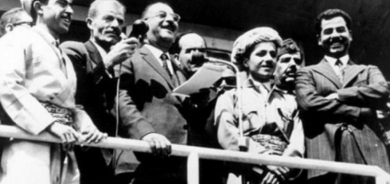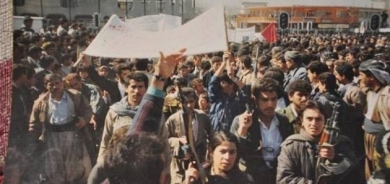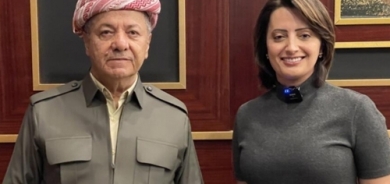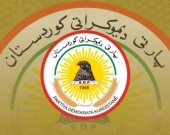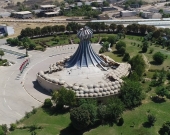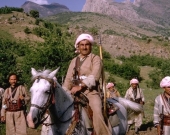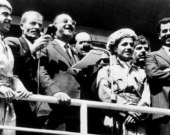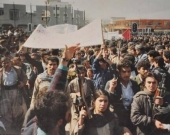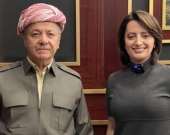The Opposition Does Not Reject Accommodation and Joint Action, And is Watching the Government and the Political System
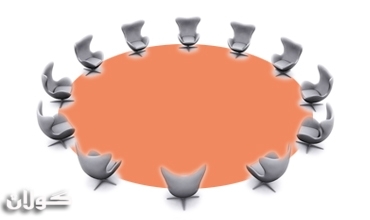

As the well-known political scientist Elmer Eric Schattschneider famously asserted more than half a century ago in arguing the importance of political parties for democratic societies, he said: ((the political parties created democracy and modern democracy is unthinkable save in terms of the political parties)). This famous quotation of “SchattSchneider” drives us to pause on some important points:
1. Old and contemporary democracies are unthinkable without political parties. Besides; the donor countries as well as the international agencies’ support for the developing countries are rather to do the elections and assist the Civil Society Organizations, with very limited support political parties. That’s why; we often see democracy in such countries deviate from its direction and move towards the emergence of Populism. Thus; political experts and scientists suggest giving more importance for political parties in such cases, and also to deal closely with the political parties. And the reason for this is that, even though the political parties are sometimes part of the problems, yet they are often part of the solutions.
2. Regarding to the idea suggesting that: ((the political parties created democracy and modern democracy is unthinkable save in terms of the political parties)), the origin of this idea is that; political parties have been created as a necessity for representing people’s needs in the democratic societies, and also as a need for democracy to function. But according to surveys conducted by Researches Centers, it appeared that the political parties have failed in this important task; representing people’s needs.
3. Although political parties are generally being mentioned in the democratic societies, but there is no any specific name for any political party. In other words; “Ruling Party” or “Opposition” is not an everlasting name for any party, and that’s why the talks are more about “Multiplicity” and preserving this feature, and not organizing the relations between the ruling parties and the oppositions, and this originates from the idea which says that; no party is a ruling one forever, and also no party is an opposition forever.
4. The political parties in the democratic societies, whether are in the government or are oppositions, they only have one task, which is to represent the people. It is true that each political party represent a certain segment of the nation, but after the elections and the formation of the government, the political parties that form the government should be generally responsive to all of people’s demands, and not only to those who voted for them. Meanwhile; the opposition parties also should represent all of people’s needs, demands, and critics they have against the government, and not only representing those who voted for them.
This situation which faces the political parties in the democratic societies transforms the political parties from a private volunteered organization into a popular organization or into a popular party, which makes them be able do a wide range of representation. But in many democracies, the political parties can’t achieve this type of transformation internally within their own parties; they keep functioning as private and volunteered organizations, try more to guarantee their parties’ interests, and they influence their candidates and their followers’ voting methods in a way they fail later to represent.
Parties’ Different Roles
And Democracy’s Common Methods
If the relations between democracy and the existence of political parties mean it is impossible for democracy to exist without democratic political parties. So; does this mean that the existence of multi-party system in any country would make democracy to appear and develop in one similar form? This question can’t be simply answered in accordance with democracy theory and by saying that; political multiplicity is the stone base for democracy, which is a very clear fact though. At this point; the main question is: does every political multiplicity produce the same type of democracies? Obviously; the field researches on different countries, in particular on the developing countries, show different types of democracies, when these different democracies in some cases move the political parties’ role into a positive direction along democratic development phase and being as a mean for building strong and statehood political institutions in the society, but the role of the political parties and their works on the democratic process in other cases have led the concept of party and democracy theory be isolated and have separated between them. Thus; this idea is showing us that functioning methods and political parties’ ideology in the society have granted different forms to democracy. Democracy develops when political parties generally devote their politics to serve democracy.
Opposition and Ruling Parties
Are voters’ Classifiers
As it was mentioned at the beginning of this report, all political parties in the democratic societies have one task only, which is to represent people’s demands and organize that representation for running the country. After the elections, number of the political parties turn into ruling parties and form the governments, while other parties become oppositions and watch the ruling parties’ actions in order to make sure that they are achieving their programs. These are the outcomes of the voters and the polling boxes. That’s why it is likely for the nation to reconsider its views about the political parties in next elections, in a way that the ruling parties turn into oppositions and the oppositions turn into ruling parties and form the governments. Regarding to the role of the political parties in the democratic societies, we interviewed The Professor Ira Smolensky, a professor of political sciences and expert on the American political parties’ roles in Monmouth University, we asked the Professor Smolensky about the importance of political parties’ role in democracy, he replied to Weekly Gulan Magazine in an exclusive interview as the following: ((Political Parties help to organize the Mass Opinion for political participation. So; you want people to participate you want activity, but you don’t want instability. So, the political parties have been interested in systems to bring about manageable activities that are highly interested, but which doesn’t break into violence. Regarding to the democracy building process, if we can do democracy without parties, and we may learn how to do it, but right now we don’t know how to do it, then we have to make the best of the system we have. And regarding to the role of the opposition parties, in theory; the opposition party should be focusing on the weaknesses of the governing party’s programs, and they should be focused on meeting the needs of the people. The difficulty is that the opposition party also has interests in gaining power. So; they have interests in opposing everything. And I think you can see that in the United States, when “Barrack Obama” was elected, I think the Republican Party was thinking: “OK, let’s wait and see what this guy does wrong, and we will bring that out to the American People.” The Republican Party decided: “We are not going to cooperate with anything that “Barrack Obama” does; we are not giving this man a success.” That was their goal, and almost everyone in the Republican Party used that strategy. I think our founders in the United States would say that partisanship should take second place after patriotism, that when you’ve elected a leader, a legitimate opposition focuses on legitimate problems, and that is crushing the system when the opposing party is looking at its own benefits. In the United States, sometimes you can’t tell who the ruling party is and who the opposition is, sometimes everybody seems like opposition.))
If we read Professor Smolensky’s words, we see that the ruling party respects the opposition and vice versa. Meaning; the opposition party respects its government as well, responds to people’s legitimate demands, and never refers to anything as bad. Regarding to the political parties’ position in solving the issues and their role in building the culture of democracy in the society, The Professor John T. Ishiyama, a professor of political sciences in North Texas University, and in an exclusive interview in this respect, replied to Weekly Gulan Magazine as the following: ((Political Parties are crucial in recruiting new political leaders who are committed to democracy. Second; political parties are important because they act as the institutions which form policies and governance. In other words; aggregate individual interest in combining them together into a common policy. Third; political parties help socialize the population into developing the cultural values that are supportive of the political democracy. So; in literature that’s often been defined as being the reasons why the political parties are vital to the development of democracy. This is a global phenomenon; it is not in the authoritarian regime, it is in the west as well. Before, parties tended to emphasize representing programs and ideas. While now, political parties are made of professional politicians whose only interests in hold and gain power. That I think is a worldwide phenomenon, and the perception of the population is that: “the political parties aren’t really representing us; therefore we have no interests in participating in politics or supporting the political parties”. This is a great problem facing not only the developing world but the rest of the world as well. I suppose the question is how to reverse that, and how do political parties regain the trust of the population; this is very difficult, because this needs to develop the culture of democracy. There are democratic cultures in society and democratic cultures promoted by parties. In many countries you have the lack of developed democratic political culture, and there are also political parties that are incapable of building that democratic political culture. One thing that many observers of western political parties argued, is that political parties help develop democracy because they help train the population to adopt those democratic political values. If you don’t have parties that can do that, then you aren’t going to have democratic political values, and that’s a dilemma facing most of the developing countries. So the question is: what to do about the political parties? What can we do to restructure the political parties so that they do help in promoting the democratic political values? Sometimes the opposition parties tend to act violently and harm democracy, providing intensives for the opposition to behave well, because many of the oppositions are so opposed and are irreconcilable with the regime and only seek to see its downfall. I think the way that you make the opposition to behave, is that you provide them with some intensives to behave by sharing power, because if you have an opposition that is completely shut out of the political power, it is likely that they are going to engage an anti-system behavior. While if you have an opposition that have some inclusion into the political process, consultative someway, they less likely to behave that way. Many scholars made arguments that inclusion is the best way to promote an accommodation and a responsible opposition, and I think they are generally right.))
Regaining Trust
Between Parties and Population
One of the cases that create discomforts in the democratic societies is the declining of trust in the political parties among people. Although this phenomenon appears in the developing countries in their democracy building process, yet it is also a problem in the developed and the developing countries as well. But since the democratic institutions aren’t rooted well in the developing countries, that’s why it appears as a very dangerous phenomenon. In this respect, experts boil down the dangers of this case in the developing countries as the following:
1. Regarding to the political parties that win the elections and form the government, their action does not reach a level in which balance may occur between their elections campaign’s promises and practical actions, even it would not be close to balance. Therefore; the people’s trust weakens towards the political parties in this equation.
2. The parties that lose the elections and turn into oppositions, they would be considering as elections’ looser and as deprived from power, so that they tend to use all possible means to get to power. This thing makes the oppositions instead to think of peaceful circulation of power; they rather think to reject the political system as a whole, and they blame the democratic system’s institutions for being the reason behind poverty and corruption, that’s why it is necessary to change that system and establish a Populist System through polling boxes.
3. Many of the developing countries, or the countries that are in the beginning of the democracy building process, are post-conflict countries. Meaning; those are countries that, their political and state institutions are not that strong. Thus; since democracy is a process which always under criticism in the developing countries, therefore; these critics create sort of complications and rejections.
4. Experts on transition field recommend the developing countries to make efforts for strengthening the political and the state institutions, because without strong institutions there are always risks for the old disputes to rise once again.
In respect to the points mentioned above, we have interviewed The Professor Karen Henderson, a professor of political sciences in the British Leicester University and an expert on democracy in the post-communist countries, in particular on Slovakia and the Czech Republic. Regarding to this aspect about the political parties, Professor Henderson replied to us, to Weekly Gulan Magazine, and in an exclusive interview, as the following: ((The political parties are necessary to organize a diverse range of opinions and policy alternative. If you only have one political party, then there is no scope to provide choice to the public. Also; a certain minimal level of trust and respect between government and opposition is very helpful for consolidating democracy. If there is collaboration on some issues, some elements of reform and change work much more fruitfully. The government must always try to make sure that the opposition has rights to represent, for example in parliament, and make constructive rather than negative contributions to the running of the country. Lack of trust in the political parties is wide-spread phenomenon; it doesn’t just face the new democracies, the trust in the political parties is declining Western Europe. One of the key reasons why citizens do not trust the political parties is when they believe that the elites in political parties are representing their own personal interests, and not the wider societal interests, that can enable them to assist broad range of the population. That’s why; it helps if political parties attempt to reconcile differences rather than to exclude or alienate people that disagree with them. The problem emerges when you have strong anti-democratic forces, and compromise with them may in fact endanger democracy as a whole. And this depends on the role of the opposition parties concerned, it also depends on the existence of freedom of press and equal access to the media across the broad range of parties. For example the press may malfunction so the public are not aware of what the governing parties are doing, a lack of transparency in the way society and politics is organized undermines trust and makes it much more difficult for the parties to control each other’s actions and implement checks and balances. But it is also a fundamental problem that occurs in many new democracies, which is the dilemma of a ruling party confronted with opposition parties such a hostile to democracy and hostile to the system. Sometimes it appears the easiest thing to do to declare them illegal or to exclude them from the political system, on other occasions it is much better to integrate them with the system.))
Professor Henderson practically worked on Democracy in the post-communist countries. She senses the danger that in this sensitive stage, usually democracy faces non-democratic or anti-system forces. Thus; and in this respect, we asked The Professor David Pak Yue Leon, a professor of political sciences in Minnesota University, he expressed his opinions to Weekly Gulan Magazine and said: ((in the democratic system, people would prefer peaceful transfer of power. So: political parties allow that peaceful transfer of power to be conducted in a more organized way. But I think the most important thing is having a competitive political system. In a democratic system, I think the opposition party ought to monitor of the party in the government. So; the opposition party has a monitoring function, that if the party in power did anything wrong, then the opposition party ought to be able to alert the people on those mistakes that are being made. So; I think the opposition party can help the system in the sense that the party in power does not be allowed to abuse its power. And there are many factors for solving the disputes. With the existence of democracy culture, the differences would be settled by peaceful means. The differences should be settled peacefully by the culture of democracy, and then people can stop violence. So; a culture of accommodation of accepting changes or differences peacefully is also matters.))
Translation and transcription: Qane Kakeiy

